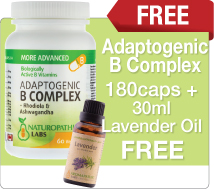Asthma
Updated Dec. 01st, 2017
Asthma is a common respiratory ailment that affects people of all ages. The incidence of asthma has doubled over the last 15 years. The attacks are caused by inflammation and hypersensitivity of the airways. Spasms of the small bronchiole tubes occur and air cannot move out. This leads to difficulty breathing.
Increased mucus production and swelling of the bronchioles also blocks the tubes and exacerbates the problem.
Triggers for attacks can be external, such as a food allergy, medications, smoke, environmental chemicals, dust, pollen, animal hair or dander. Internal triggers for asthma can be stress, emotions, exercise, cold air, humidity, dry air, low blood sugar or viral infections.
Asthma attacks usually begin with a dry cough and tightness in he chest. They can progress to wheezing and laboured breathing. Some attacks are life-threatening. Anxiety and panic attacks can result from the feelings of suffocation that the asthmatic experiences.
The underlying causes of asthma are not well understood. Genetics does seem to play a role. The suppression of eczema with medication can make you more susceptible to asthma in the future. Candidiasis, low digestive enzymes, low stomach acid and food sensitivities are also thought to be root causes of asthma.
Conventional treatment of asthma involves medications such as inhaled corticosteroids, theophylline and beta-2 agonists. They treat the symptoms of asthma by reducing spasms and inflammation. They do not address the root cause of the problem. Side effects of these medications may include anxiety, mood swings, insomnia, immune suppression and decreased bone density.
Avoidance of all irritating substances is important for prevention of asthma. Home air purification systems, humidifiers, and dehumidifiers can be helpful. Keep plants that remove pollutants from the air. These types include bamboo palm, Boston fern, dracaena, English ivy, ficus ali, peace lily, rubber plant and spider plant. Regular moderate exercise and deep breathing practices can decrease hypersensitivity of the airways. Steam inhalations with thyme or eucalyptus essential oils are antispasmodic and antimicrobial.
For acute attacks place hot apple cider vinegar poultices on the arms until the attack subsides. For all of you coffee-lovers, caffeine has a dilating effect on the bronchioles and can be of help when consumed at the beginning of an asthma attack.
Dietary approaches to asthma are as follows. Increase fluid intake to decrease the viscosity of mucous secretions. Detoxify your body periodically. A diet high in raw fruits and vegetables provides a good source of vitamins, minerals, and antioxidants. Onions and garlic are good sources of quercitin and vitamin C. Flaxseed and fish oils contain essential fatty acids that are anti-inflammatory.
Avoid animal products because they contain inflammatory precursors. Avoid food colourings and preservatives such as sulphites. Avoid foods and drugs that contain salicylates including aspirin, white willow bark, and the mint family.
If food allergies are implicated in a case of asthma, individuals should use an elimination method to determine the culprit of the disturbance. An elimination diet begins with a period of abstaining from foods that are common triggers which include: eggs, wheat, shellfish, nuts, chocolate, citrus, cow’s milk and peanuts – try to also eliminate food colourings and preservatives. From this point, further, control diet by eating only mild and non-irritating foods. Now, you can begin to test different triggers by introducing foods back into your diet and recording any symptoms you have. Keep foods in your diet that is safe for you in moderation. If a food causes a reaction then it is restricted for a period of a few months. It can then be retried. Rotation diets limit your food intake to certain food families each day. It can be used to assess food allergies and is a good method to prevent the return of allergies.























I suffer from childhood asthma which is induced by allergens. As suggested in this article, I take Quercetin, Vit C and other supplements to help me.
From my experience acid reflux particularly at night is a significant contributing factor to both development and exacerbation of reactive airways disease and asthma.
Hello Jeffrey,
We're glad you enjoyed out article on asthma. That's interesting and if you'd like to learn some ways to support acid reflux or GERD, have a read through our article here:
https://www.nationalnutrition.ca/articles/health-concerns/gastric-reflux/
Stay healthy & well.
Caffeine is found in coffee, tea, cola drinks and cocoa. Caffeine is a drug that is very similar to theophylline. Theophylline is a bronchodilator drug that is taken to open up the airways in the lungs and therefore relieve the symptoms of asthma, such as wheezing, coughing and breathlessness. Scientists are interested in finding out whether caffeine has the same effect on the lungs as theophylline.
There are two major reasons why it is important to know if caffeine is a bronchodilator. The first is because it may be beneficial for asthmatics to take caffeine in order to relieve the symptoms of asthma. The second is because consuming caffeine may affect the results of important tests that determine how bad someone's asthma is.
Hello Paul,
Yes; however, caffeine shouldn't be used to replace asthma medication, but may offer some support if in a pinch. Thank you for your comments and it's great to see you're enjoying our articles and learning about health, naturally.
I had no idea that asthma could be associated with certain foods or food sensitivities! It was interesting to learn that coffee could actually be good for asthma! And interesting to know that if by chance you did not have your puffer and were suffering an asthma attack that taking coffee or chewing on coffee beans could actually help curb the attack! Fascinating! This article really touched on some good points and some great ways to help with symptoms of asthma.
Hello Rose With Thorns,
This is a very fascinating and informative article, indeed. We're glad you've been enjoying learning new things about your health, naturally. Check out this article to learn more health benefits caffeine offers: https://www.nationalnutrition.ca/articles/supplements/caffeine/